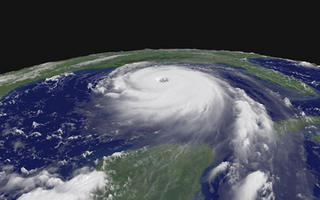Katrina

There is an eclectic mix of people howling and pointing their pointy political fingers over the relief and rescue efforts following Katrina. (I will pretend, for the sake of concentrating my efforts somewhere other than dubious assignments of motives to other people, that everyone involved is yelling and pointing from concern with aiding the victims of the hurricane and preventing similar problems in the future.)
I suspect that screw-ups were occuring at every level, but I don't want to get distracted by the political storm that Katrina has spawned. What I am more interested in is studying the decisions that were made, and how they were implemented, or not. I don't want the truth as a bludgeon, but to see how to do things better next time. To find the failures, not to lynch the guilty, but to further protect people. So there really isn't much room for political shading of facts.
A lot of failure boils down to errors in judgement. Experience is highly valued, after all, because with lots of experience, presumably, comes ever better judgement. Only so much personal experience with once-in-a-century disasters is possible, so we also expect the experts to keep stewardship of the experience others have gained. To judge the relief efforts against such experience, we need the unvarnished data. We need frank assessment without regard to any existing political narrative.
Inevitably, natural disasters strike, and inevitablely, innocent people get hurt, and the people charged with helping them make mistakes. It sucks, it's unfair, and it always impacts most those least able to handle it. And when the dust settles, I am all for heads rolling, if the incompetence or malfeasance of those heads added to the horror and chaos.
But we are bound by decency to do our best to ameliorate the suffering now, forging ahead in fixing problems, even if we think the opposing political team is evil incarnate. I think the political debate would be served by knowing as much as possible about Katrina, the aftermath and the relief efforts. We should strive to learn from Katrina, and to prevent future suffering as much as possible, which means that the engineers and scientists involved need to put aside politics and look at the data and facts. Until then, the errors are just errors. It isn't entirely clear what actions were in error. When politics is involved, there are, as they say, 'competing narratives', so even basic facts need to be confirmed.
Katrina was a monster; not a record, but still a monster, and it hit a particularly impovershed and vulnerable part of the gulf coast. It will take a while, sorting through what went right and wrong, and figuring out how to use this information for something of greater significance than throttling political opponents. To do it right, we need to evaluate the response as objectively as we can. Using any untruth, however politically expedient, could potentially harm people in the future, and is no less an outrage than any harm done by the relief effort itself.
Please take a moment to donate to the relief organization of your choice; regardless of Katrina's final toll, which fortunately seems to have been overestimated, lots of people are displaced and suffering.


2 Comments:
Amen to that. Why does everything have to have politics involved? We just have to remember we are all God's children and need to treat each other with respect and as we would ourselves like to be treated. Peace...
Wow, comments. One even legit.
Sandra-
Thanks for stopping by.
I guess politics is necessary, but it also gets in the way of a lot.
Dave
Post a Comment
<< Home